Older Americans are trying to get vaccinated. They're up against harsh inequities.
There are flaws in octogenarians navigating a complicated online vaccine system.
Younger Americans have been scrambling to secure vaccine appointments online for their grandparents and elderly parents -- combing the internet, navigating dozens of tabs at once, refreshing websites for hours -- often without any luck.
It's an experience that hardly anyone who's done it would wish on any octogenarian, and yet it's the system the nation's oldest, most at-risk residents and their families are required to navigate in order to get a vaccine.
These tech hurdles are exacerbated in the neighborhoods that need the vaccines the most, often low-income communities of color where computer and internet access aren't easily accessible, community organizers on the ground say. They worry the vaccine inequity gap will only widen as the vaccine rolls out to broader swaths of the public.
Tomas Ramos, founder of a COVID-relief nonprofit in the Bronx, knocked doors at a public housing complex last week to sign elderly residents up for vaccines.
Nearly every single one of the residents he talked to had no knowledge of how they could sign up for the coronavirus vaccine, even though they've been eligible to receive it for almost a month, he said.
"Putting up these websites and forums online, it's just not for our low-income communities of color in these spaces," said Ramos, founder of Bronx Rising Initiative, a nonprofit that's going door-to-door in public housing complexes to reach seniors and get them vaccines.
"And that's across the U.S," Ramos said.
The problem, too, stems from vaccine hesitancy, largely in Black, Latino and Native American communities -- mistrust in the shot because of decades of mistreatment by government and medical institutions, despite the safety and efficacy of the current available vaccines from Pfizer and Moderna.
And historically, that mistrust is only compounded by asking people to jump through hoops to get the vaccine.
"If vaccine hesitancy is such a problem, then by definition, there are a lot of people who are in the bubble -- who are potentially indifferent and will only get the vaccine if it's convenient," said John Brownstein, an infectious disease epidemiologist and ABC News contributor.
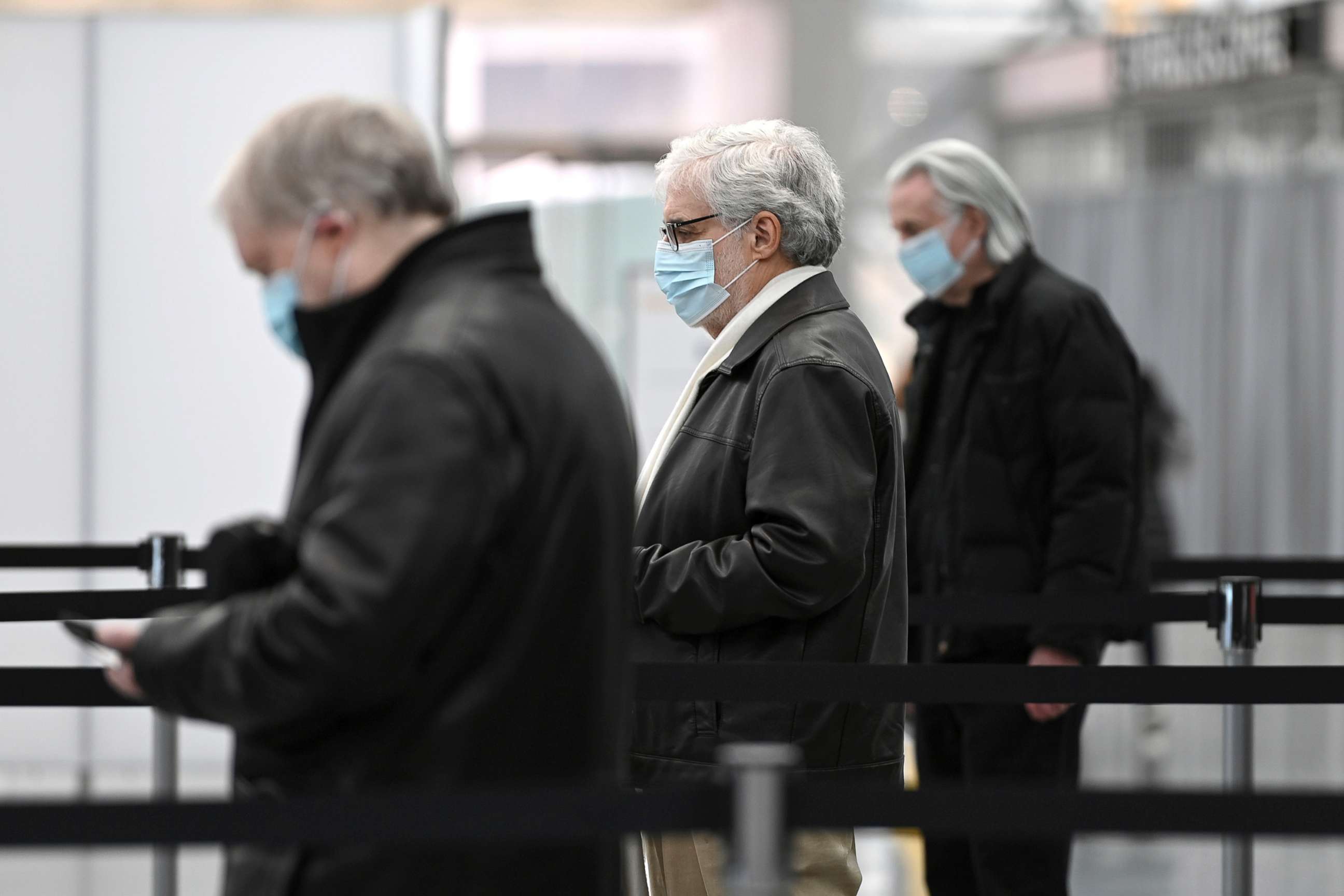
"We've seen this for so long. Convenience drives vaccine uptake," said Brownstein, who runs a website called Vaccine Finder, which works with Google to show internet users local facilities near them that offer the vaccine.
"We need to be offering convenience and reduce friction for as many people as possible," Brownstein said.
But it's the frustrating inconvenience that Americans who've made appointments more aptly recall.
After Massachusetts announced that anyone over the age of 75 could sign up for a vaccine beginning this past Wednesday, residents logged on at midnight and searched into the early morning hours navigating a host of different websites, some more challenging and faulty than others, hoping to nab an appointment.
Paul Callinan, retired Deputy Chief of Massport Fire-Rescue, called it a logistical nightmare.
"My wife was on at midnight until 3:00 a.m. trying to get an appointment and nothing was available," said Callinan. He and his wife were looking for a vaccine for her 91-year-old mother.
"Think about all the seniors who have little or no computer skills," Callinan said. "I really feel sorry for all the seniors who do not have family members who can help this with this process. Those are the folks who need it the most, and those are the people who are really suffering."
Back in the Bronx, Ramos is convinced his nonprofit has honed the solution -- one that's not rocket science, just costly, he explained.
After fundraising with a network culled from ties to Wall Street, Ramos raised $3.2 million for his nonprofit to partner with and fund a local clinic, Morris Heights Health Clinic, which got a partnership with New York state to get vaccines.
With the money raised, the clinic hired 12 more nurses and used their mobile van to bring vaccines to the public housing complex where Ramos and his fellow organizers were door-knocking.
They signed up 130 people for vaccines ahead of time, then showed up with the mobile van and pulled off the vaccinations in a day. Next time, Ramos expects to vaccinate 200 people, and their overall goal is to get 15,000 vaccinated.
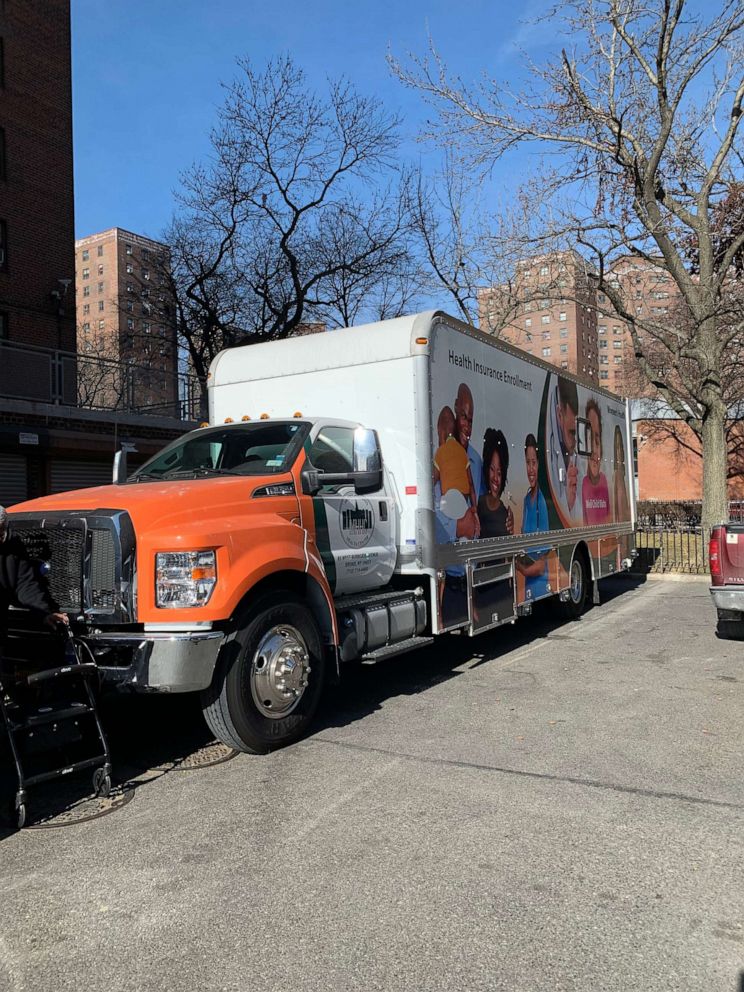
"It can 100% be replicated," Ramos said. "And I will be a point person to help anybody that wants to replicate this, because this can be done anywhere around the country."
The headwind, of course, is money. For Ramos, the way around bureaucratic red tape and waiting on state funding was to take it into his own hands, securing donations and showing that the method works.
"The reality is that there's financial restraints on a lot of this," he acknowledged. "But I'm hoping this story gets out more and more, and people with deep pockets start really investing."
The infrastructure already exists in most cities, he said, because nonprofits are on the ground and ingrained in their communities.
And yet, Ramos' program is one of a select-few nationwide.
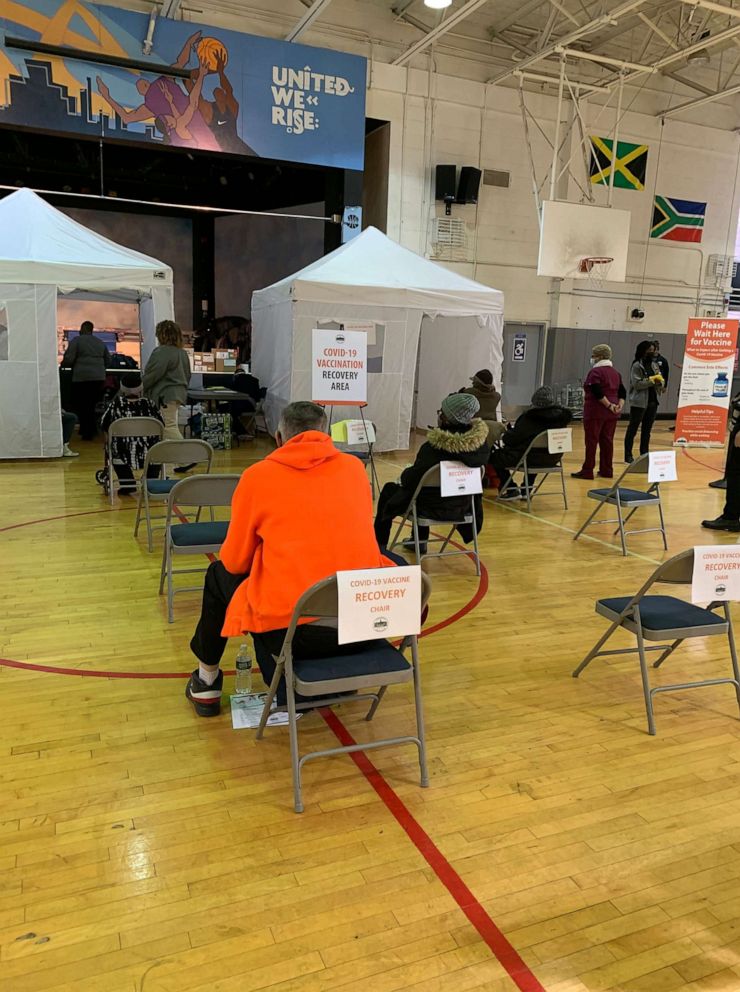
Though the Biden administration and many governors have spoken about sending out more mobile vans and designing community vaccine centers, large-scale action requires money, and money means congressional approval.
In the meantime, a handful of local cities and counties have begun to launch mobile clinics on a small scale, and a larger-scale effort is underway in Wisconsin.
Asked if the federal government could be doing more, Dr. Anthony Fauci, Biden's chief medical adviser, said more "equitable" vaccine distribution was top of mind but asked for patience.
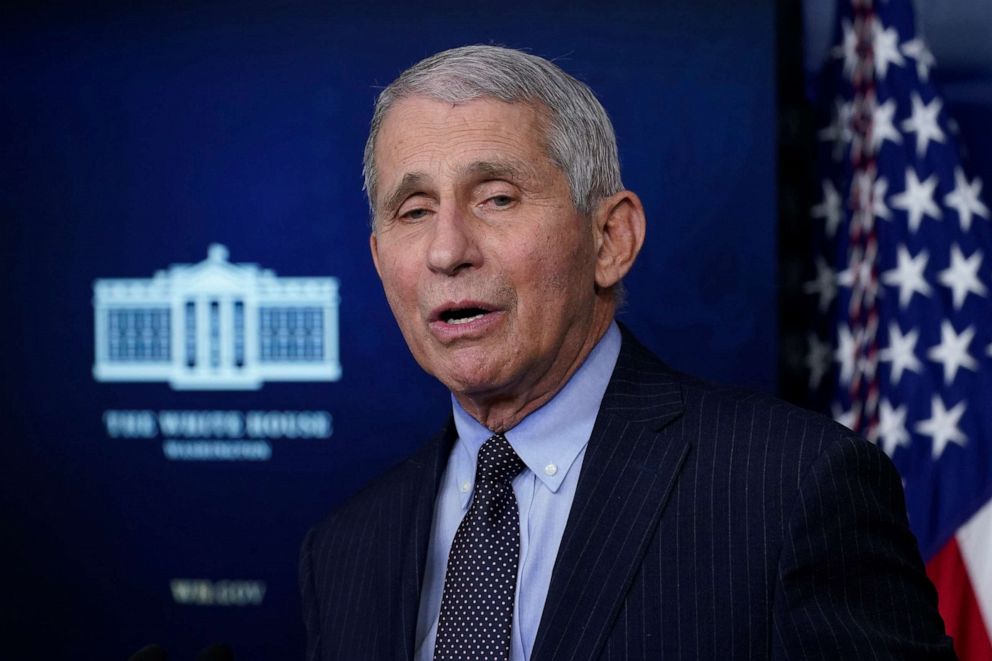
"By equitable I mean, not just people who can get on a computer or not just people who could walk into a drugstore that's around the corner from them," he said, mentioning clinics in rural areas where people don't have doctors nearby and mobile units.
"Are we doing it all at this moment? No. The administration has only been in effect for literally a few days, but the plan is to get to each and every one of the things that I otherwise would have told you maybe we should be doing more of that," Fauci said.
But some have suggested other government approaches to level the playing field, like reserving a certain amount of vaccines for people who can't make appointments online.
Kathryn Garcia, a mayoral candidate in New York City who was formerly the city's "food czar" during the pandemic, has called for reserving 25% of the city's vaccine doses for people who will be left behind without direct, one-to-one outreach, including the homebound or people who have language barriers.
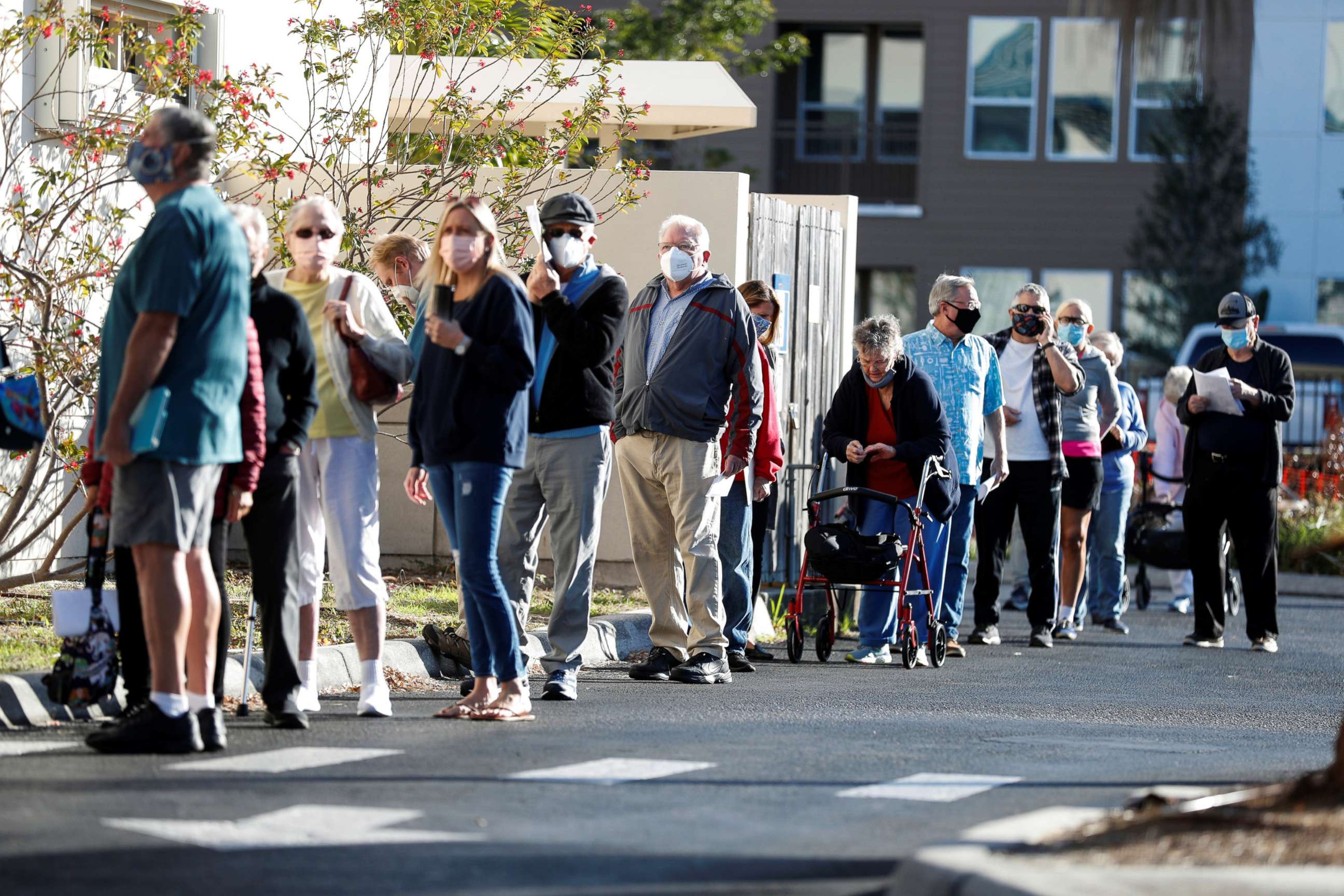
"This whole approach does not work for them," she said. "If we were designing this for a tech-savvy kid, it's working great. But it wasn't designed for a population you supposedly had eligible."
Garcia said the focus should be on immediately setting up two different pieces: mobile distribution for the homebound and leaning on "trusted community organizations" to identify people.
"They're not going to make it through the hoops of the website, and to ensure that they get it, we either have to make the appointments for them, or we have to bring the vaccine to them," Garcia said.
ABC News' Arielle Mitropoulos contributed to this report.




